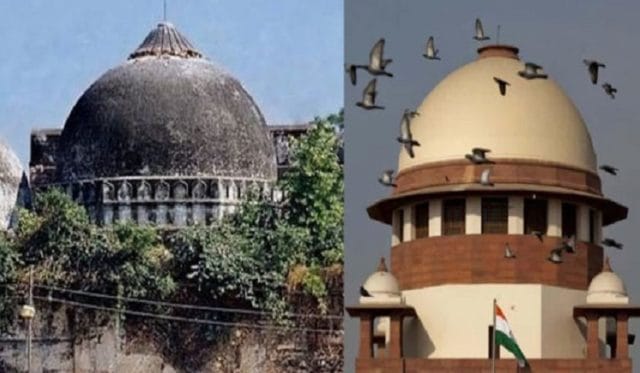
Agencies / NEW DELHI
The Supreme Court today granted time till August 15 to the three-member mediation committee to explore an amicable solution to Ayodhya Ram Janmabhoomi-Babri Masjid land dispute case.
The committee, headed by ex-apex court judge F M I Kalifulla, had sought the extension to complete mediation proceedings.
The matter was being heard by a five-judge Constitution bench, comprising Chief justice of India Ranjan Gogoi and Justices S A Bobde, D Y Chandrachud, Ashok Bhushan and S Abdul Nazeer.
The apex court has also allowed parties to raise objections before the panel till June 30.
The matter came for the first time today since the March 8th order by which the top court had referred the case for mediation. Spiritual guru Sri Sri Ravishankar and senior advocate Sriram Panchu, a renowned mediator, are the other two members of the panel.
The panel was asked by the apex court to hold in-camera proceedings and complete it within eight weeks.
The dispute involves the site in Ayodhya where the 16th-century Babri mosque stood before it was razed in 1992 by Hindu activists who believe that it was built on the ruins of an ancient temple marking the birthplace of Lord Ram. In riots following the mosque demolition, 2,000 people died across the country.
Fourteen appeals have been filed in the top court against the 2010 Allahabad High Court judgment, delivered in four civil suits, that the 2.77-acre land in Ayodhya be partitioned equally among the three parties – the Sunni Waqf Board, the Nirmohi Akhara and Ram Lalla (infant Ram).
The Constitution Bench chose mediation despite objections from petitioners like the Uttar Pradesh government. Barring the Sunni Waqf Board and the Nirmohi Akhara, one of the Hindu petitioners, all were against mediation. But the judges said mediation may help in “healing relations”.
“It is not only about property. It is about mind, heart and healing, if possible,” the bench had said in a past hearing.
Besides the Chief Justice, the other judges in the constitution bench are Justices SA Bobde, DY Chandrachud, Ashok Bhushan and S. Abdul Nazeer.